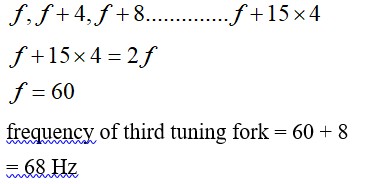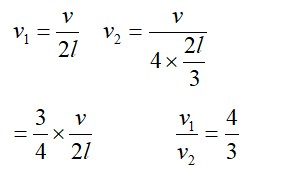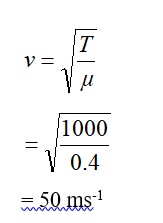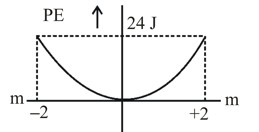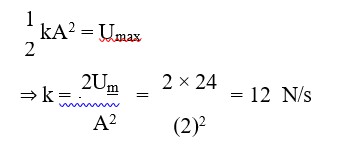Which of the following statements are true for wave motion?
(a) Mechanical transverse waves can propagate through all mediums.
(b) Longitudinal waves can propagate through solids only.
(c) Mechanical transverse waves can propagate through solids only.
(d) Longitudinal waves can propagate through vacuum.
Which of the following statements are true for wave motion?
(a) Mechanical transverse waves can propagate through all mediums.
(b) Longitudinal waves can propagate through solids only.
(c) Mechanical transverse waves can propagate through solids only.
(d) Longitudinal waves can propagate through vacuum.
This is a multiple choice answer as classified in NCERT Exemplar
(c) When mechanical transverse wave propagates through a medium, the constituents of the medium oscillate perpendicular to wave motion causing change in shape. That is each element of the medium is subjected to shearing stress. Solids
Similar Questions for you
The acceleration of wave is g/2. Its speed increases as it moves up. So answer is (2)
Taking an Exam? Selecting a College?
Get authentic answers from experts, students and alumni that you won't find anywhere else.
On Shiksha, get access to
Learn more about...

Physics NCERT Exemplar Solutions Class 11th Chapter Fifteen 2025
View Exam DetailsMost viewed information
SummaryDidn't find the answer you were looking for?
Search from Shiksha's 1 lakh+ Topics
Ask Current Students, Alumni & our Experts
Have a question related to your career & education?
See what others like you are asking & answering

